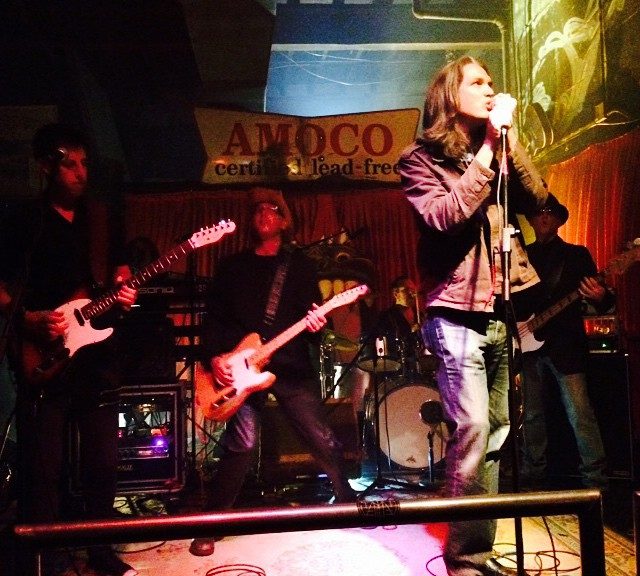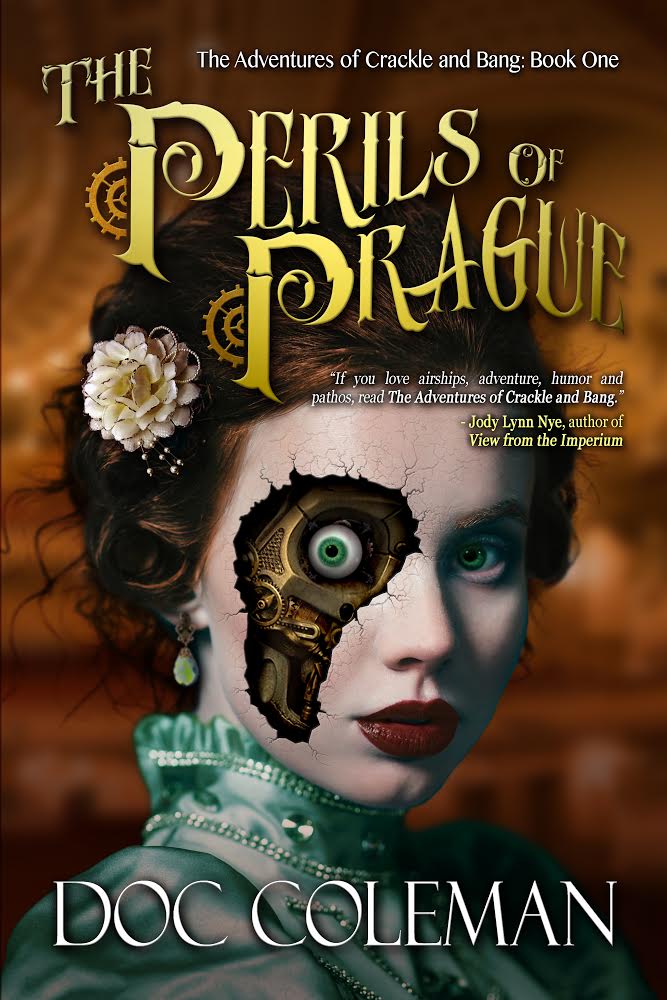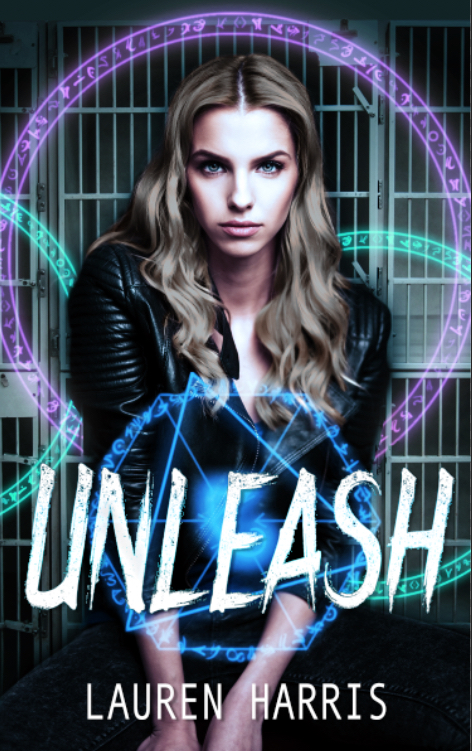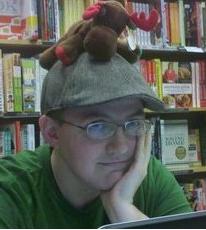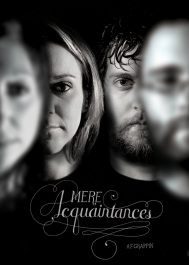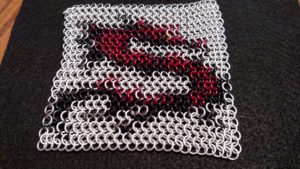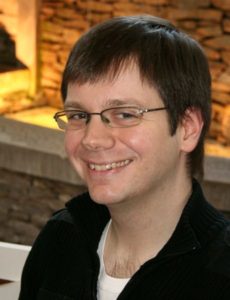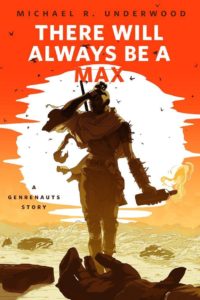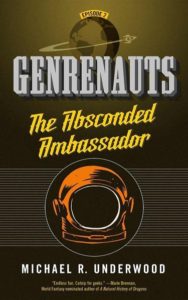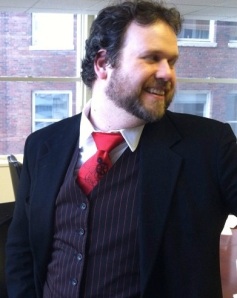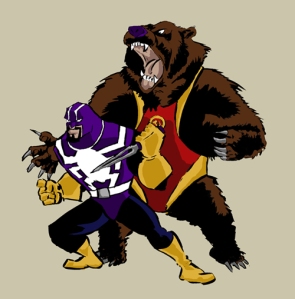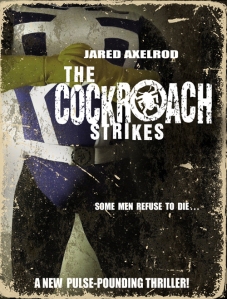(This is part “Three Questions With Xxxx“. If you’re interested in taking part click here and fill out the form.)
I’ve gotten to know such a great variety of talented people through social media. One of those people happens to be Morgan Elektra. I’ve read “Big Teeth” (see my review here) and I’m in the process of reading the novella that brings her to my blog. Expect a review of that soon. Enough about all of that. Let’s bring on the questions!
1) Why did you start writing romance/erotica?
The short answer is: I thought I would be good at it.
Long story longer though…
 Growing up, I was incredibly dismissive of romance as a genre. I liked horror and fantasy, and like any naive person, I believed those were the best genres and everything else was crap. (Hey, I was young and stupid.)
Growing up, I was incredibly dismissive of romance as a genre. I liked horror and fantasy, and like any naive person, I believed those were the best genres and everything else was crap. (Hey, I was young and stupid.)
In my early teen years, my family moved into a new house. All my books were packed away, and I was desperate for something to read. (I am old, so this was before the days of ebooks.) The house we were renting had previously been inhabited by the elderly grandmother of a friend of my brother, and there was some furniture and things left behind. On one small bookcase in the hall was a single book, Sweet Fierce Fires, by Joyce Myrus.
It was a total bodice ripper but I needed something to read, so I sucked it up. And, by the end of the book, I found myself with a new obsession.
Being a teenager, part of what kept me seeking out romance novels was the thrill of the illicit, of course. But there was far more to it than that. For instance, because most of what I read was historical, there was a lot of vocabulary and references to people and events that actually engaged me in a subject I had previously not had much interest in. And I found myself intensely emotionally engaged as well.
The stories in romance may be smaller than an epic fantasy quest, space marine battle, or sweeping dystopian horror, but I felt I could relate so deeply to the emotions the characters were experiencing. And during a time when my own emotions were so hard to quantify and give voice to, romance often did that for me. Even though it often made me cry, it also cheered me and gave me hope during a time in my life when I felt very alone and misunderstood.
All that said, when I thought of pursuing a writing career, I imagined myself writing horror. That was my first love, and my sensibility is still very dark. I’m much more Grimm than Disney. (As anyone who reads my self-pubbed short story Big Teeth: a dark fairytale will learn.)
But when I began ghostwriting, the majority of jobs being posted were for romance & erotica. I decided to go for it, since people had often commented on the sensuality of some of my darker pieces before.
I think that it’s my earthy Taurean manifesting. We’re known for being creatures of sensation, and that definitely fits my personality.
And it turns out I really enjoy writing sex and love and emotion. Like, a lot.
Sex, good sex at least, is such a personal thing. Even if you’re with a stranger and you barely speak, you reveal so much more of yourself than just your physical body. I love exploring that. And I love sharing what I find with others.
The world needs more love and great sex. Now more than ever.
2) One thing I’ve noticed in this genre is that some authors end up rehashing a lot of tropes and even reusing situations/scenes. How do you avoid being too formulaic or relying on the tropes too much while still giving fans what they want?
Does it sound terrible if I say I don’t worry about that? The way I see it, there really aren’t all that many unique stories under the sun. We’re more similar the world over than we are different. Humans has been telling stories literally since the beginning of civilization. Everything has been done at some point, in some form or another.
One of my first steps into the world of writing romance & erotica was reading a lot of fanfiction, and the fanfic community is happily and unapologetically trope-central. They have trope fests, where everyone writes ‘fake boyfriend’ or ‘accidentally bonded’ or ‘college roommate’ stories. They celebrate the tropes. But that doesn’t mean the fic community isn’t full of amazing stories. I’ve read so many that I was blown away by. It’s not the trope or cliche, it’s what you do with it.
 A Single Heartbeat, for instance, could easily be tagged with the ‘enemies to lovers’ trope. And that is essentially where I started when I came up with the idea.
A Single Heartbeat, for instance, could easily be tagged with the ‘enemies to lovers’ trope. And that is essentially where I started when I came up with the idea.
But I didn’t think, “Oh but there are so many enemies-to-lovers stories out there!” I feel like if I had, I would have talked myself out of ever writing it at all.
What I try to do is make my characters as real as possible. Like they’re ready to walk right off the page, sit down beside the reader, and ask for a drink. To tell you about their crappy or amazing day.
Because people may have read a ton of enemies-to-lovers stories before, they may even have read a bunch of vampire & vampire hunter romances… but they’ve never read Reese and Will’s story before.
3) Your most recent book was published by MLR Press. You’ve also self-published some works. What’s your experience in both realms been like and do you have a preference?
I am admittedly a baby in the publishing world. I self-pubbed two of my short stories (Big Teeth: a dark fairytale and Candy) just to see what the process was like and get an idea of what was involved. It was nerve-wracking, honestly. I would do it again, but it’s not my favorite thing to do. I stress about every little thing too much.
Working with MLR, on the other hand, has been amazing. Everyone has been kind and willing to answer questions for the newbie, and they’re very encouraging and supportive. I didn’t have to worry about things like formatting, which I’m not really comfortable with. And I got to have quite a lot of input in things like cover design, which was a nice surprise.
I’m definitely hoping to work with MLR more in the future. I’ve just completed a connected follow-up story to A Single Heartbeat that they are considering, and I have a few more in mind in the same universe, so I’d be thrilled to have all those at MLR.
That said, MLR only publishes M/M romance and erotica. As much as I love writing that, I don’t think I’m going to stick exclusively to that sub-genre. I have a handful of short stories already written that aren’t even romance/erotica, let alone M/M. I’m looking for homes for them in online and print publications.
While I overall prefer working with a publisher, I see myself being a hybrid author going forward. Primarily working with a publisher, but putting out something on my own every once in awhile. That seems to me to be the best route for balancing my need to be in control with my desire to just write.
I’d much rather concentrate on creating new stories and engaging with people on social media. Those things feed my soul more than formatting and cover design.
Which is my round-about way of saying everyone should follow me on my various media platforms and say hi. I’m a bit awkward and shy in person, but online I love to chat!
Thanks for taking this time to read this! You can find Morgan around the internets at these places:
Website – https://bymorganelektra.wordpress.com/
Patreon – https://www.patreon.com/MorganElektra
Twitter – www.twitter.com/MorganElektra
Facebook- www.facebook.com/ByMorganElektra
Instagram – https://www.instagram.com/morgan_elektra/
Goodreads – https://www.goodreads.com/author/show/13886167.Morgan_Elektra
Amazon – www.amazon.com/author/bymorganelektra
QueeRomanceInk – https://www.queeromanceink.com/mbm-book-author/morgan-elektra/
You can buy her newest book at these fine bookery establishments:
Direct from MLR Press: https://mlrbooks.com/ShowBook.php?book=MESNGLHB
Amazon: http://amzn.to/2iohS9b
B&N: http://www.barnesandnoble.com/w/a-single-heartbeat-morgan-elektra/1125410790?ean=2940157434557
Kobo: https://www.kobo.com/us/en/ebook/a-single-heartbeat-1
 2) I see more and more artists (be they musicians, visual artists, or writers) going independent in their production models. I think there’s a longer tradition of that in music. What are the benefits and difficulties of doing it yourself?
2) I see more and more artists (be they musicians, visual artists, or writers) going independent in their production models. I think there’s a longer tradition of that in music. What are the benefits and difficulties of doing it yourself? My decision to release EPs was truly based on being able to release things more frequently AND have something that journalists and consumers understand- a collection.. Attention spans are also pretty short these days, and the lifespan of a new release (which used to be up to a year) is now less than 90 days. Crazy, huh- a new record is old news after 3 months have passed. smh..
My decision to release EPs was truly based on being able to release things more frequently AND have something that journalists and consumers understand- a collection.. Attention spans are also pretty short these days, and the lifespan of a new release (which used to be up to a year) is now less than 90 days. Crazy, huh- a new record is old news after 3 months have passed. smh..